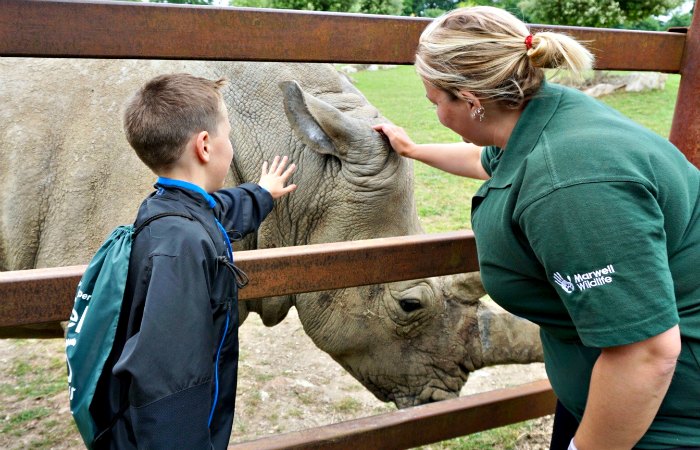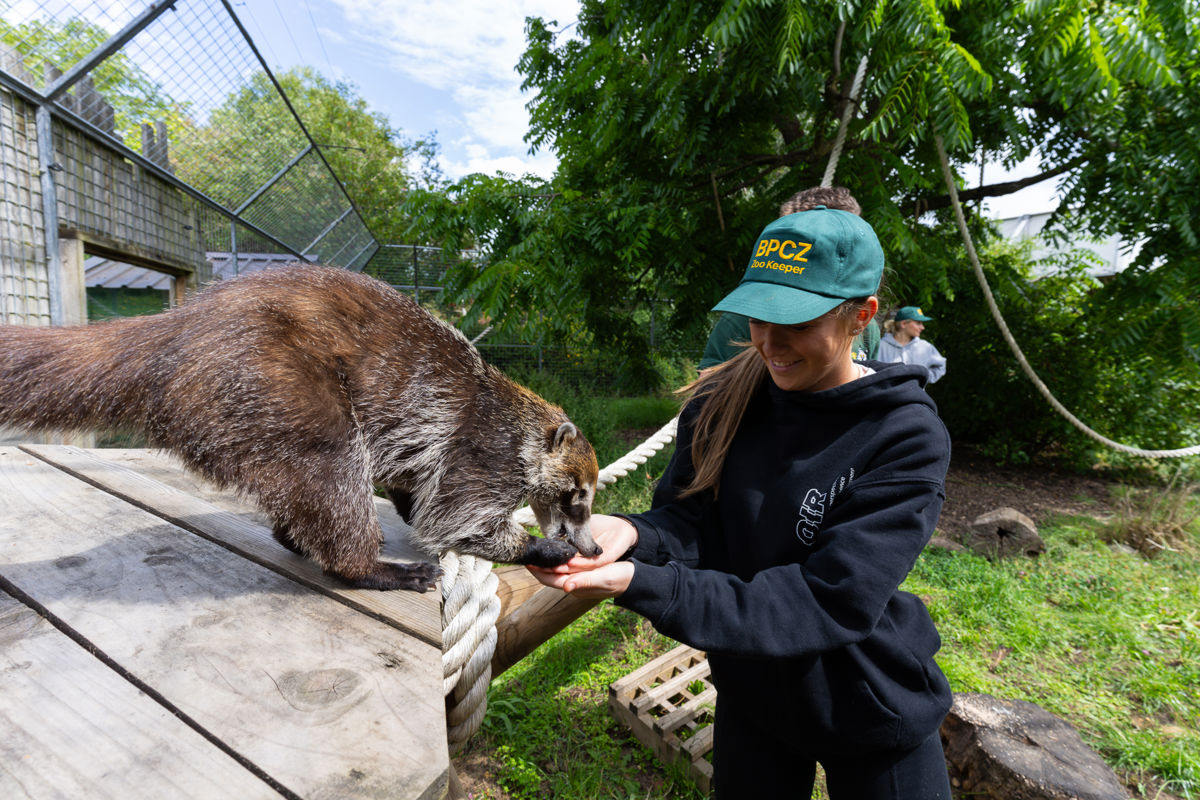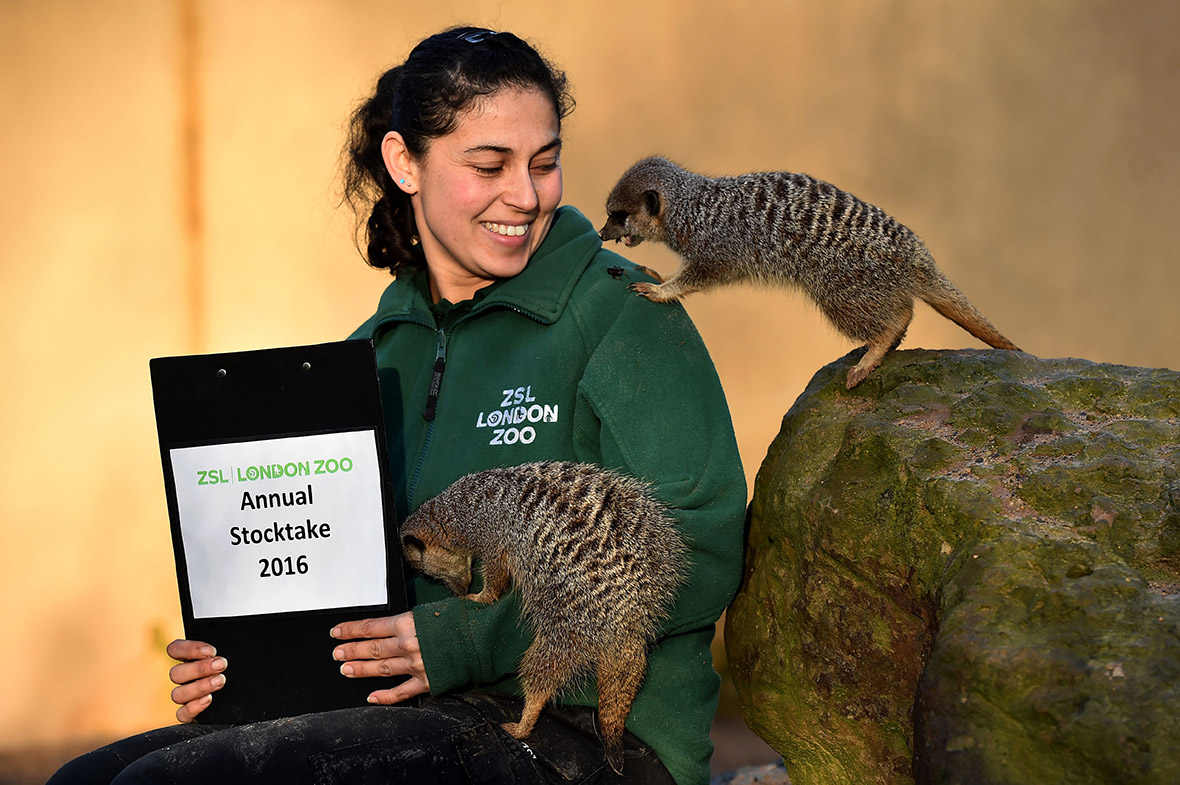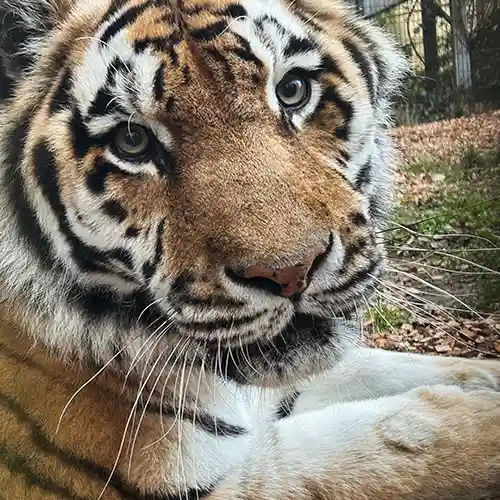견적문의
페이지 정보
작성자 Kathie 댓글댓글 0건 조회조회 170회 작성일작성일 25-06-18 08:07본문
| 회사명 | ZR |
|---|---|
| 담당자명 | Kathie |
| 전화번호 | NV |
| 휴대전화 | UF |
| 이메일 | kathiedelargie@aol.com |
| 프로젝트유형 | |
|---|---|
| 제작유형 | |
| 제작예산 | |
| 현재사이트 | |
| 참고사이트1 | |
| 참고사이트2 |

"The greatness of a country and its moral progress can be judged by the way its animals are treated." - Mahatma Gandhi

Do you love animals and imagine working in a zoo? Zoo keepers are key in protecting wildlife and taking care of animals. At locations like the Zoological Society of London (ZSL), over 20,000 animals get the care they require from experts.

To become a zoo keeper, you require effort, education, zoo and a love for animals. This job is interesting, letting you work with numerous species and assist with important conservation work. If you're into wildlife or animal welfare, zookeeping might be best for you.
Beginning your zoo keeper career means discovering what's needed. This guide will cover education, experience, and more. It's all you require to know to start a satisfying zookeeping career.
Understanding the Role of a Zookeeper
Exploring what a zookeeper does reveals a function full of obstacles and rewards. They focus on animal welfare and conservation. Zookeepers strive to keep animals healthy and pleased in their care.
Daily Responsibilities and Tasks
A zookeeper's day is filled with crucial jobs:
- Preparing meals that satisfy each animal's nutritional requirements
- Cleaning enclosures to keep them clean and safe
- Supervising animal health and behaviour
- Providing medicines and treatments as needed
- Developing activities to keep animals mentally sharp
Workplace and Conditions
Zookeepers work outside in all kinds of weather condition. They handle both indoor and outdoor spaces. The job needs being fit and able to deal with the needs of caring for animals.
"Being a zookeeper is more than a task - it's a passionate dedication to animal care and conservation."
Types of Animals and Specialisations
Zookeepers can specialise in lots of animal groups:
- Primates
- Big cats
- Marine mammals
- Reptiles
- Birds
Your role may include working with 2-5 different animal types. This requires a great deal of understanding and the ability to adjust.
Vital Skills and Personal Qualities for Zoo Keeping
To be a top zookeeper, you need more than just a love for animals. Your task will be difficult and require you to handle animals and zoo people well. You'll also need to understand animal behaviour.
What zoos try to find in individuals includes:
- Exceptional perseverance and emotional durability
- Strong physical fitness and endurance
- Keen observation abilities
- Ability to remain calm under pressure
- High level of empathy towards animals
Getting hands-on experience is key to mastering this role. You'll need to show:
- Advanced understanding of animal care methods
- Efficiency in animal handling and safety procedures
- Reliable communication with both animals and human visitors
"An excellent zookeeper links science, empathy, and preservation in every interaction with animals."
You ought to learn about animal nutrition, behaviour, and standard vet care. Many zookeepers learn through training, offering, and ongoing knowing.
Zookeeper work is not simply a task. It's a big dedication to teaching about wildlife and helping conservation. Your enthusiasm and effort will make you stick out in this satisfying career.
How to Become a Zoo Keeper
Starting a profession as a zookeeper needs mindful planning and education. You must first comprehend the academic needs and training courses. These will turn your love for animals into a task.
Educational Requirements
To be an excellent zookeeper, you need a strong scholastic base. The majority of tasks look for certain qualifications:
- At least 5 GCSEs at grade 4 or above, consisting of English, maths, and science
- A levels or college credentials
- A college degree in biology or animal science
- Level 3 Diploma in Animal Management
Needed Certifications
Getting unique certifications can actually assist you in your zookeeper profession. Crucial ones consist of:
- Diploma in Management of Zoo and Aquarium Animals (DMZAA)
- Zookeeping Level 3 Diploma (RQF)
- Animal dealing with certificates
- First aid credentials
Training Programs and Apprenticeships
Getting hands-on experience is key in zookeeper training. Numerous locations provide fantastic opportunities:
- Unpaid apprenticeships at wildlife parks
- Internship programs at popular zoos
- Practical training at places like Colchester Zoo and Dartmoor Zoo
- Offering to gain real-world abilities
Pro tip: Create an in-depth portfolio to reveal your animal care skills. It will assist you in task applications.
Building Relevant Experience in Animal Care
Gaining hands-on experience is essential for those wishing to be zookeepers. The job is very competitive. So, it's essential to begin developing a strong base in animal care.
Your journey starts with discovering methods to work directly with animals. This is a tactical action.
"Experience is the best teacher in animal care" - Wildlife Conservation Experts
Here are effective methods to gain experience dealing with animals:
- Volunteer at regional animal shelters to establish basic animal dealing with abilities
- Look for internships at wildlife rehabilitation centres
- Explore part-time positions at veterinary clinics
- Contact your local zoo for possible volunteer opportunities
Volunteering is a great way to discover animal behaviour and care. Many zoos and animal shelters are searching for people who wish to discover. These locations use terrific opportunities to get hands-on experience and show your devotion to animal welfare.
Here are some suggestions to make the most of your experience:
- Keep a record of your abilities and interactions
- Connect with professionals in animal care
- Request recommendations and letters of recommendation
- Stay persistent and reveal your true enthusiasm
Remember, practical experience makes you stick out in the zookeeping world. Every time you deal with animals, you learn more. This increases your opportunities of getting a job in animal care.
Career Pathways and Professional Development
Starting a profession as a zookeeper is amazing. It offers lots of possibilities to grow and specialise. Your journey starts with understanding the different courses in this field.
Entry-Level Positions
Entry-level tasks in zookeeping are a great start. They give you hands-on experience. Zoos look for candidates with:
- Level 2 Diploma in Animal Care (minimum certification)
- GCSEs in English and a scientific subject
- Volunteer experience at animal shelters or farms
Career Progression Opportunities
As you get experience, your career can grow. You can move up to:
- Junior Keeper
- Senior Keeper
- Team Leader
- Specialist Roles
"Continuous learning and useful experience are crucial to advancing in your zookeeping profession."
Specialised Roles
You can likewise select unique areas like:
- Conservation breeding programmes
- Animal training
- Wildlife research
- Educational outreach
About 25% of zookeepers get advanced degrees in zoology or animal preservation. Getting Level 4 credentials can increase your opportunities for senior functions and research.

Working Hours and Physical Demands
Becoming a zookeeper suggests you'll work more than just regular hours. You'll deal with hard physical difficulties and require to be versatile, including weekends and holidays. Zoos are open every day, so you'll typically work when others unwind.
"Zoo keeping is not a common 9-to-5 job-- it's a way of life of dedicated animal care and commitment."
This job is physically demanding. You'll work outside in any weather, lifting heavy products over 50 pounds. Your jobs may include:
- Early early morning feeding schedules
- Cleaning animal enclosures
- Preparing specialised diets
- Conducting health checks
- Maintaining complex habitats
Shifts can begin as early as 5 AM and go late into the night. You'll be on your feet most of the time, moving in between animal zones. Weekends and holidays are part of the task, needing great deals of endurance and commitment.
Regardless of the challenges, this job has fantastic benefits. You'll grow strong, both physically and mentally. You'll likewise make amazing connections with incredible animals.
Health and Safety Considerations
Being a zookeeper features its own set of obstacles. It's crucial to understand how to keep both animals and personnel safe. This implies following rigorous health and safety rules.

Zookeepers face a distinct environment where security is crucial. Research studies reveal that health and wellness are now as crucial as the zoo's primary work.
Threat Management Strategies
There are several methods to handle risks in zoos:
- Daily checks of animal enclosures for threats
- Counting animals at the start and end of shifts
- Seeing how visitors act near animals
- Being ready for emergencies
Animal Handling Safety Protocols
Understanding which animals are most is vital. Huge animals like rhinos can be really dangerous. There have been cases where zookeepers got seriously harmed.
Security isn't almost using equipment - it's about knowing animal behaviour and staying alert.
Individual Protective Equipment
Zookeepers need to wear the ideal gear, including:
- Special gloves for dealing with animals
- Strong shoes for grip and security
- Clothing that safeguards against bacteria
Getting vaccinated versus illness like hepatitis B and rabies is also essential. It helps keep zookeepers healthy in their tough job.
Wage Expectations and Job Market
Thinking about a career in zoo keeping? It's crucial to understand about salaries and the job market. The field is growing, with more chances in the UK.
Let's look at what zoo keepers can make at various phases:
- Entry-level zookeepers begin at about ₤ 14,000 a year
- Certified ones make in between ₤ 16,000 and ₤ 22,000
- Senior zookeepers can earn up to ₤ 30,000 or more
The job outlook for zoo keepers is good. The sector is expected to grow by 5% in the UK by 2029. This suggests around 3,910 brand-new jobs will be readily available.
"The Association of Zoos and Aquariums supports expert development for zoo keepers," a report states.
Salaries vary based upon several things:
- Experience level
- Expertise
- Where you work
- The zoo's size and type
While the pay may not be high, the joy of dealing with animals is priceless. The typical wage is around ₤ 17,000. But, total earnings can be in between ₤ 13,000 and ₤ 27,000 a year.
Conclusion
Beginning a career in animal care is an interesting journey. It needs devotion, enthusiasm, and a love for knowing. With over 350 zoos and wildlife locations in the UK, there are lots of job opportunities. You'll get to deal with fantastic animals and assist secure wildlife.
To be a zoo keeper, you require more than simply love for animals. You must have a mutual understanding of biology, have the ability to communicate well, and constantly wish to learn more. You'll gain hands-on experience, learn about animal welfare, and establish a deep respect for nature. About 3,000 people in the UK have discovered fulfilling professions in this field.

Your success in zoo keeping comes from mixing science with a love for animals. Whether you're interested in mammals, birds, or marine life, this task lets you assist with preservation. Every day will bring brand-new challenges and discovering chances that will improve your skills and knowledge.
If you love animals and want to assist secure wildlife, zoo keeping might be for you. Handle the challenge, stay curious, and turn your passion for animals into a gratifying profession.


